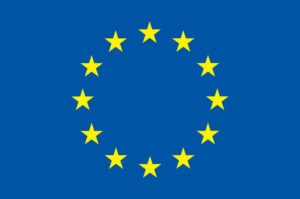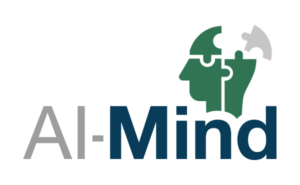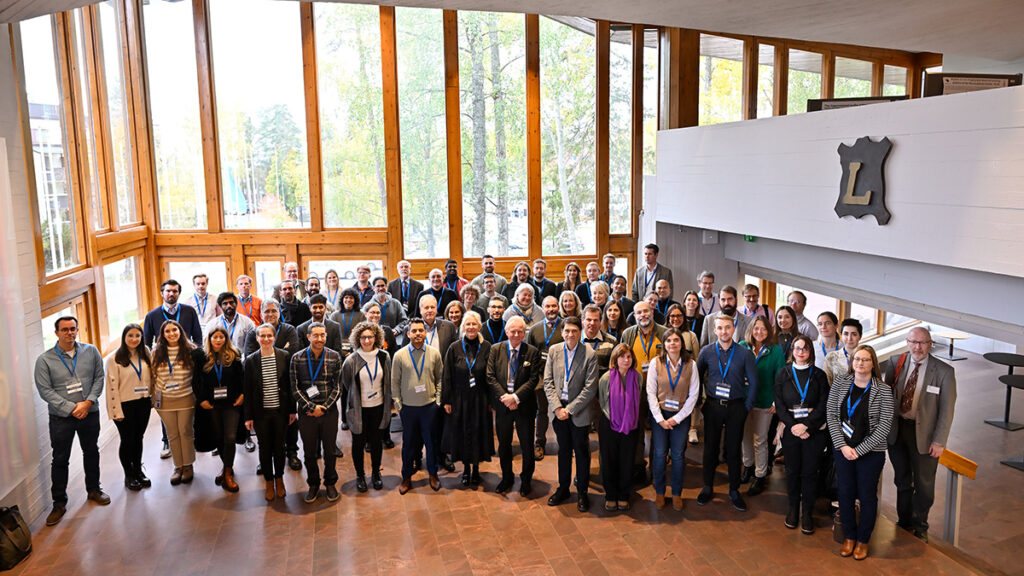Takeaways from AI-Mind’s 7th General Assembly
Helsinki, Finland – October 19-20, 2023
Following the success of the 33rd Alzheimer Europe Conference that attracted 1000 participants from 69 contries, the AI-Mind Project consortium gathered for its 7th General Assembly meeting, hosted by partners from BioMag Laboratory HUS Medical Imaging Center, Helsinki University Hospital, and Aalto University in Helsinki, Finland on October 19 and 20.
The meeting brought together 68 in-person attendees and an additional 13 joining online, representing both the AI-Mind consortium and esteemed external speakers. Prior to the assembly, on October 18, part of the consortium convened for a pre-General Assembly ethical workshop, conducted by Alzheimer Europe and delivered by Dr. Angela Bradshaw and Dr. Ana Diaz. This thought-provoking workshop delved into various dimensions of bias in research and emphasized the crucial role of inclusivity in research studies. The session closed with an open discussion on approaching and mitigating potential risks in the development of artificial intelligence (AI) algorithms.

Dr Ira Haraldsen
The AI-Mind General Assembly commenced with a warm welcome from the local hosts, setting the stage for two days of enriching discussions and insights into the project’s progress. The project coordinator, Dr. Ira Hebold Haraldsen from Oslo University Hospital provided a comprehensive overview of the significant strides made thus far.
To promote interdisciplinary collaboration, partners took a unique approach by not sharing their own achievements but presenting the work and progress in other domains of the project. For example, Robin Vermeulen from Radboudumc Research, focusing on early Technology Assessment in Work Package 6 (WP6), presented the work of partners from Tallinn University and DNV in Innovative Practices for Early Diagnosis of Alzheimer’s Disease with AI, developed within WP1.
The assembly featured a series of insightful lectures, with the first day encompassing topics such as
- Focal excitation-inhibition dysregulation in Alzheimer’s disease, presented by Heikki Tanila (University of Eastern Finland),
- Hypersynchronization as an MEG biomarker for tracking the AD continuum by Fernando Maestu (UCM), and
- Early diagnosis and care of Alzheimer’s disease is cost-effective and supports quality of life by Anne Koivisto’s (HUS).
All talks were followed by discussions.
On the second day, Ole Petter Ottersen (UiO) tackled the challenges of transfer and implementation in clinical practice, offering valuable perspectives on the practical application of research findings.
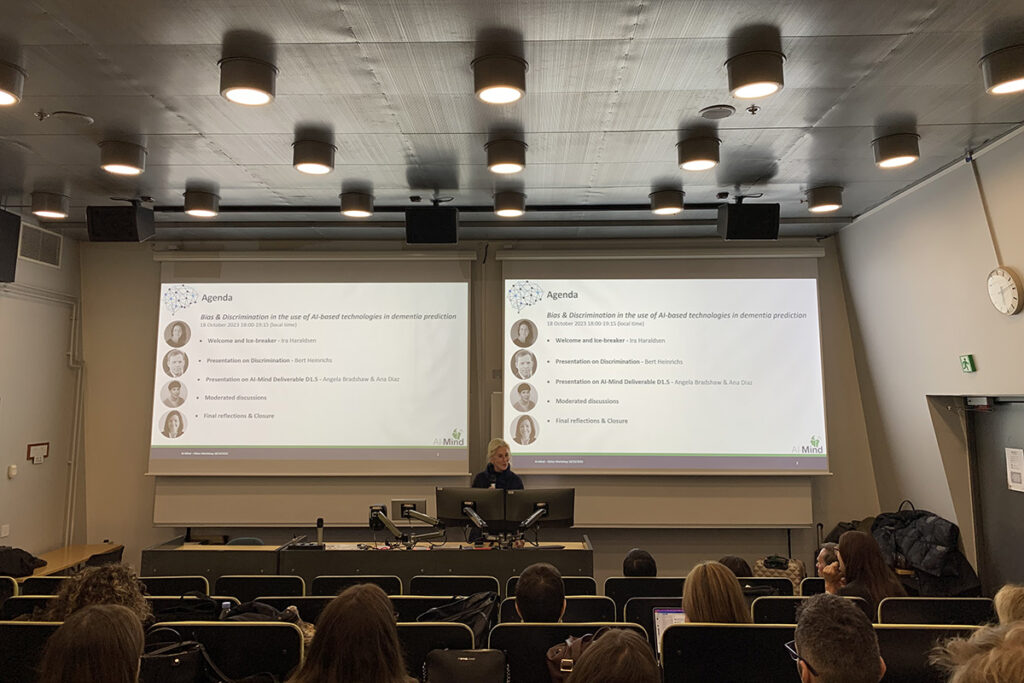
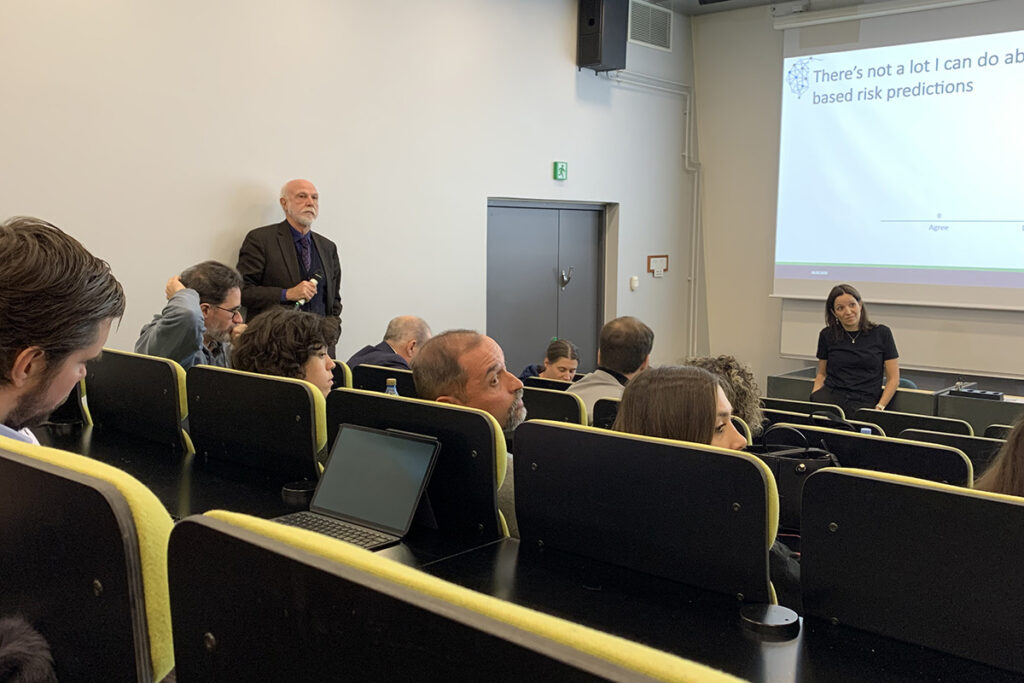
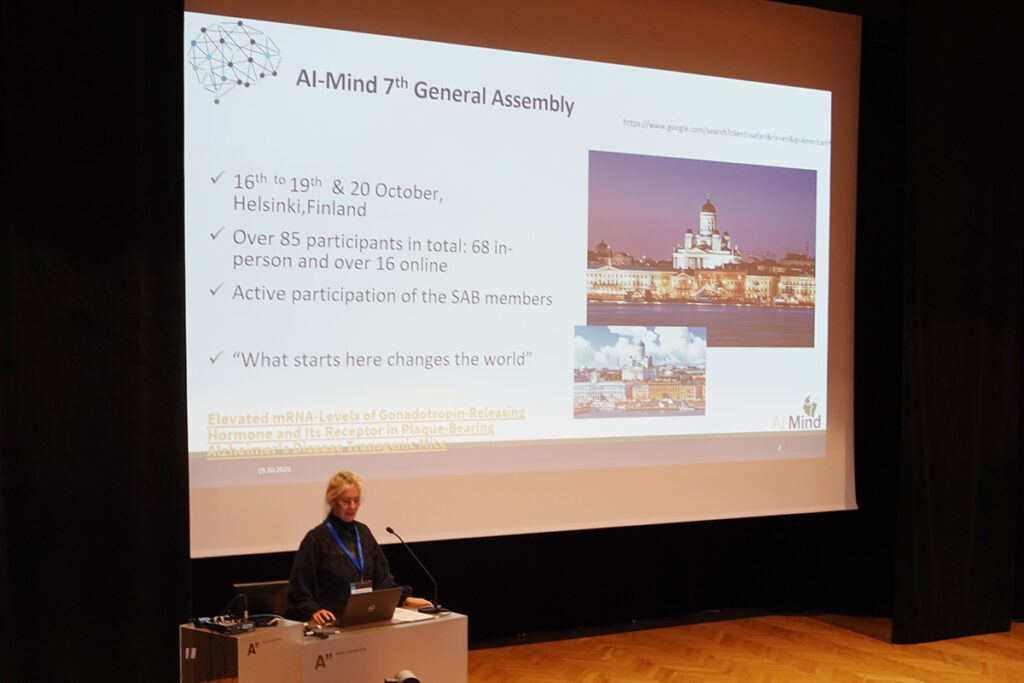
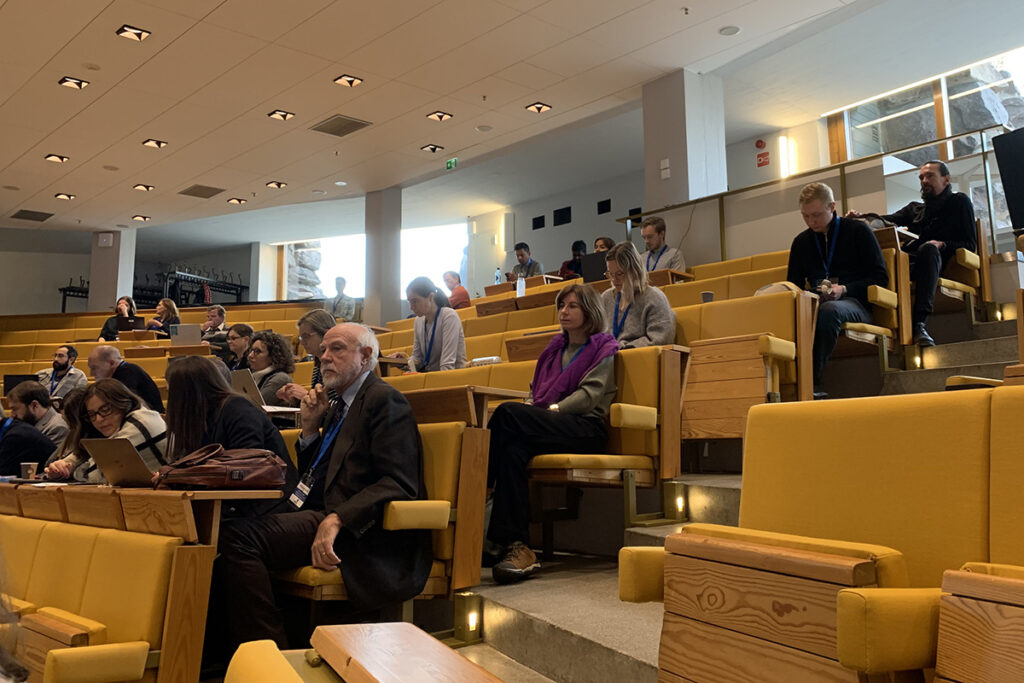
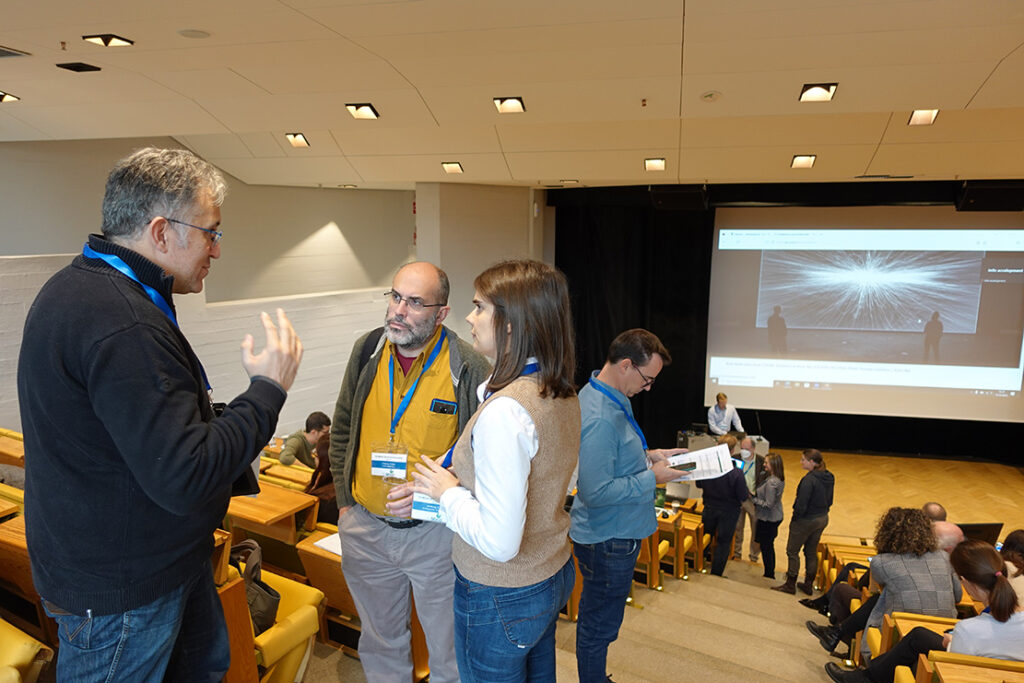
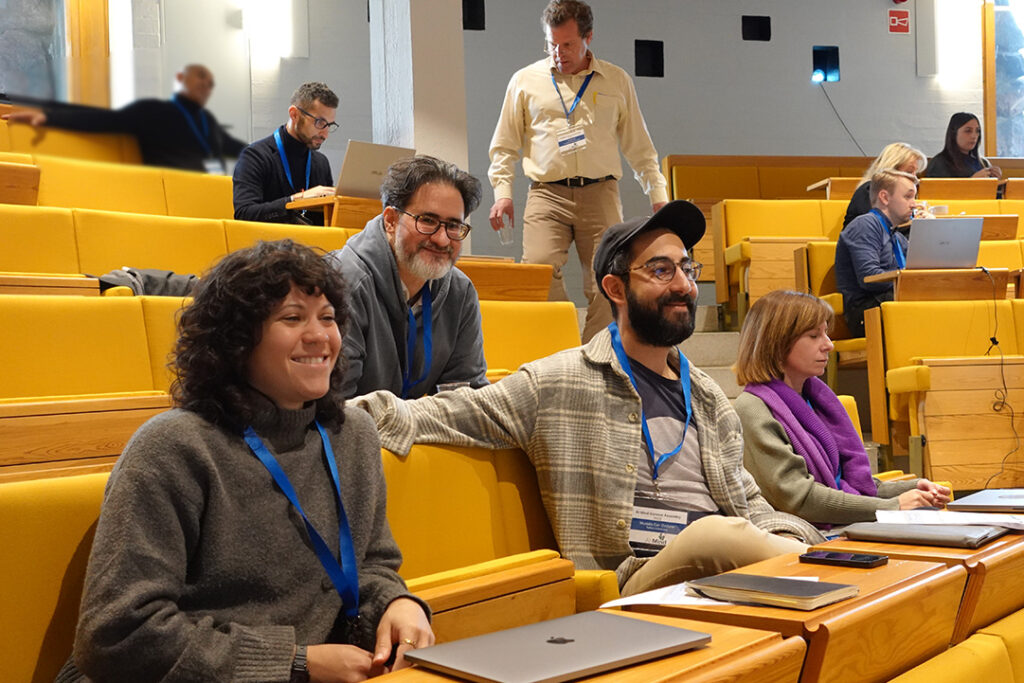
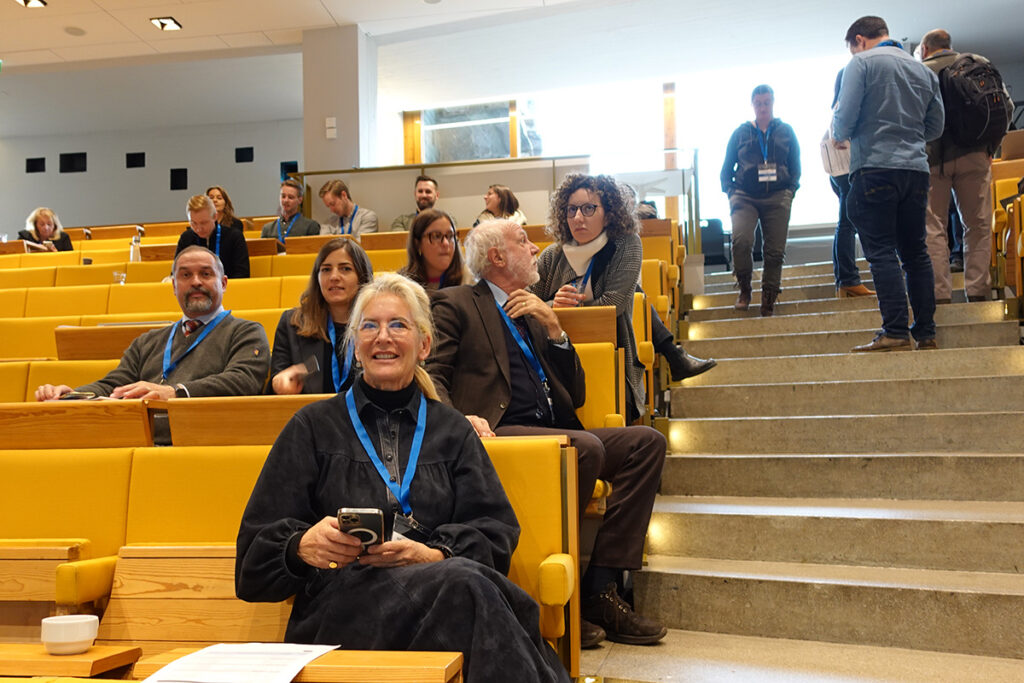
A highlight of the second day was the panel discussion led by Vebjørn Andersson (OUS), featuring young researchers from the project, namely Robin Vermeulen, Daniel Irabien, Mats Tveter, Federico Toraño, Claudia Carrarini. Their insights shed light on the advantages of cross-disciplinary collaboration, emphasizing the value of diverse perspectives and innovative thinking.
“We can benefit from the experience outside our expertise that gives us a different perspective and motivates us to question our approach and to look out of the box”.

Claudia Carrarini
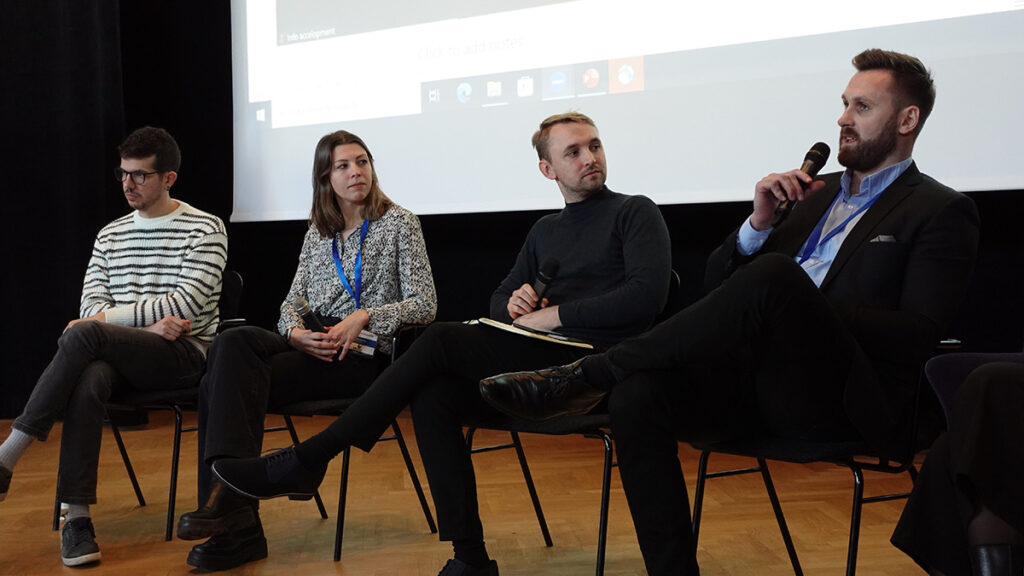
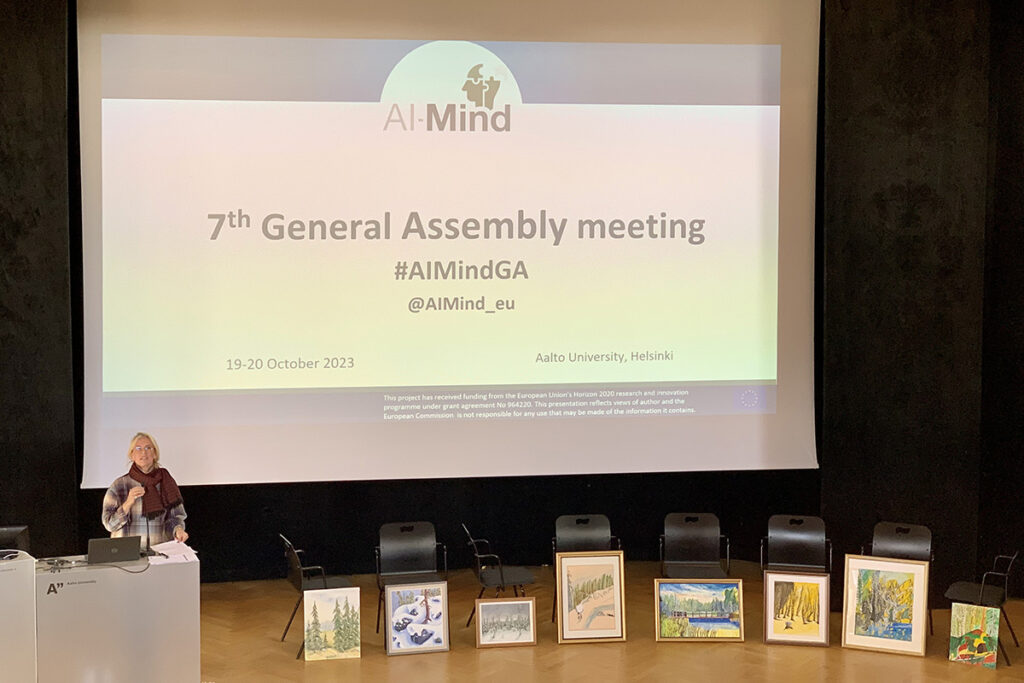
The afternoon of the second day was dedicated to parallel sessions of different work packages. Partners engaged in discussions about the next steps for the development of AI-Mind tools and their validation in clinical settings.
The assembly concluded on a poignant note, featuring an exhibition of paintings by an individual affected by Alzheimer’s disease. The eight paintings captured the progression of the disease, showcasing how art served as a means for the patient to express themselves, even as the disease profoundly impacted cognitive functions and brain activity.
The 7th General Assembly of the AI-Mind Project stands as a confirmation of the dedication and collaboration of researchers and partners in the pursuit of innovative solutions for early diagnosis of dementia disease. With renewed momentum, the consortium looks forward to further advancing the frontiers of dementia research through the integration of cutting-edge AI technologies.
Read more about AI-Mind on our projects overview page ai-mind.eu/project/ and stay tuned for news on our most recent activities also via social media:
LinkedIn, Facebook, Twitter and YouTube!
Group picture by Ilkka Nissilä.
